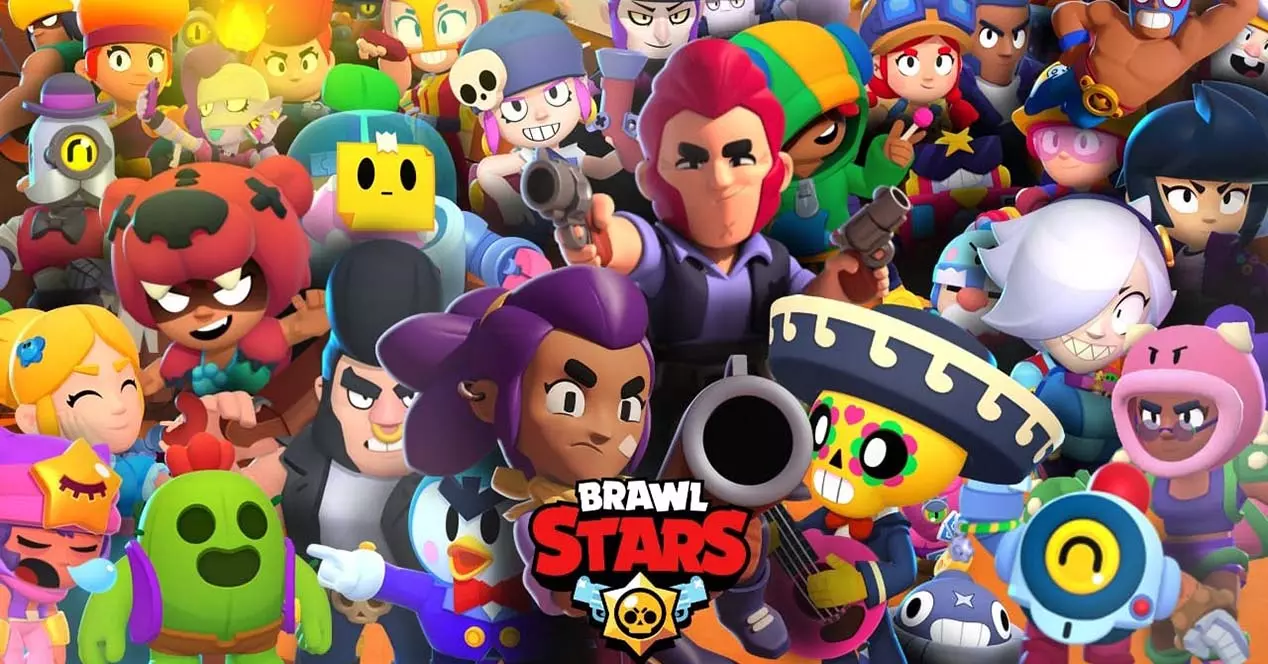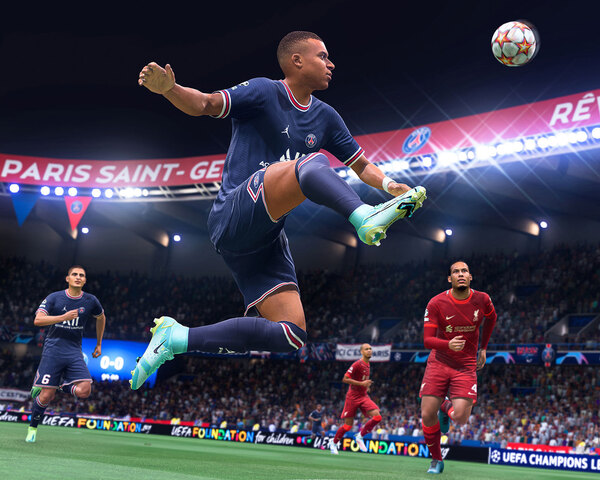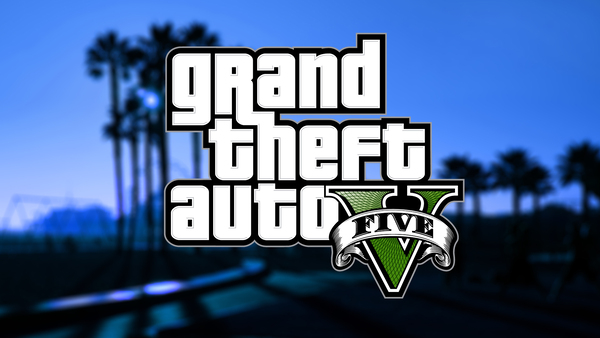Advertisement
Popular Now
Introduction
In Red Dead Redemption 2 (RDR2), Rockstar Games crafted an immersive and intricate Honor System that affects gameplay, character relationships, and even the storyline’s outcome. As players journey through Arthur Morgan’s world, their decisions influence his honor level, altering how others perceive him and the events that unfold. Understanding how the Honor System works and the nuances of how honor is gained or lost is essential for making the most of Arthur’s story. This guide provides an in-depth look at the Honor System, from its impact on gameplay to effective ways of maintaining or shifting Arthur’s reputation to align with your play style.
The Foundation of RDR2’s Honor System
The Honor System is a core gameplay mechanic in RDR2, affecting interactions, reputation, and story progression.
[caption id="attachment_1850" align="aligncenter" width="600"]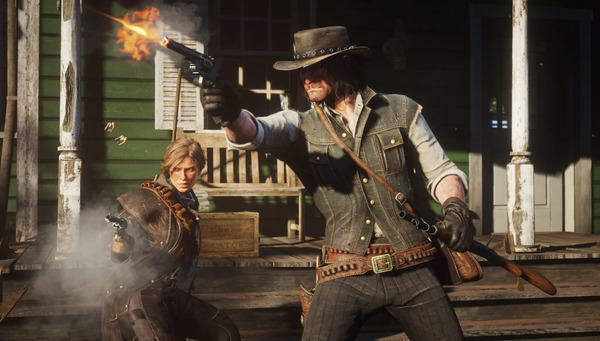 The Honor System is a core gameplay mechanic in RDR2, affecting interactions, reputation, and story progression.[/caption]
How Honor Works
The system operates on a sliding scale, with honor ranging from low (negative) to high (positive). Good deeds raise honor, while nefarious acts lower it, creating a complex moral landscape for players to navigate.
Importance of Honor
Honor significantly influences the game’s tone, including story arcs and endings. Higher honor results in a more sympathetic portrayal of Arthur, while lower honor showcases his ruthless side.
Early Game Decisions: Setting Arthur’s Path
The beginning of the game presents players with subtle opportunities to establish Arthur’s honor level.
First Encounters
When interacting with other characters, small choices, such as whether to greet or antagonize strangers, impact honor. Early, minor decisions create a foundation for Arthur’s reputation.
Hunting and Animal Treatment
Killing animals without using all their parts or leaving carcasses rotting in the open decreases honor, establishing early on that the game rewards responsible hunting.
Mid-Game Interactions and Evolving Consequences
As the game progresses, the stakes become higher, and honor impacts gameplay more noticeably.
Helping Townsfolk
Stopping to assist people in distress, from wagon accidents to snake bites, earns Arthur honor. These encounters show Arthur’s impact on the lives of others, adding depth to the honor mechanic.
Conflicts and Restraint
While fighting is often unavoidable, choosing to knock out rather than kill opponents yields honor. This restraint, especially in towns, demonstrates Arthur’s sense of justice and adds to his reputation.
Balancing Honor with Survival: Outlaw Life vs. Honor
Arthur’s life as an outlaw creates a challenging dynamic between survival and honor.
Robbing for Necessity
Robbing trains, stagecoaches, or strangers results in lost honor, but necessary robberies sometimes conflict with Arthur’s moral path. Finding ways to offset dishonorable acts, such as helping strangers or donating to the camp, becomes crucial.
Handling Bounties
Avoiding unnecessary bloodshed when bounty hunters track Arthur maintains his honor. Instead of killing pursuers, disarming them or escaping is a strategic way to preserve his reputation.
Late Game Choices and Honor’s Impact on Story
As Arthur’s story nears its climax, his honor level determines much of his legacy and relationships.
Key Story Moments
Certain missions include pivotal choices that significantly alter the story, and high honor unlocks different dialogues and story endings. Key moments, such as helping John Marston’s family, resonate differently depending on Arthur’s honor.
Interaction with Gang Members
Honor affects gang relationships. High honor prompts supportive dialogue from Dutch, while low honor leads to tension, showing how Arthur’s actions influence the entire gang dynamic.
[caption id="attachment_1851" align="aligncenter" width="600"]
The Honor System is a core gameplay mechanic in RDR2, affecting interactions, reputation, and story progression.[/caption]
How Honor Works
The system operates on a sliding scale, with honor ranging from low (negative) to high (positive). Good deeds raise honor, while nefarious acts lower it, creating a complex moral landscape for players to navigate.
Importance of Honor
Honor significantly influences the game’s tone, including story arcs and endings. Higher honor results in a more sympathetic portrayal of Arthur, while lower honor showcases his ruthless side.
Early Game Decisions: Setting Arthur’s Path
The beginning of the game presents players with subtle opportunities to establish Arthur’s honor level.
First Encounters
When interacting with other characters, small choices, such as whether to greet or antagonize strangers, impact honor. Early, minor decisions create a foundation for Arthur’s reputation.
Hunting and Animal Treatment
Killing animals without using all their parts or leaving carcasses rotting in the open decreases honor, establishing early on that the game rewards responsible hunting.
Mid-Game Interactions and Evolving Consequences
As the game progresses, the stakes become higher, and honor impacts gameplay more noticeably.
Helping Townsfolk
Stopping to assist people in distress, from wagon accidents to snake bites, earns Arthur honor. These encounters show Arthur’s impact on the lives of others, adding depth to the honor mechanic.
Conflicts and Restraint
While fighting is often unavoidable, choosing to knock out rather than kill opponents yields honor. This restraint, especially in towns, demonstrates Arthur’s sense of justice and adds to his reputation.
Balancing Honor with Survival: Outlaw Life vs. Honor
Arthur’s life as an outlaw creates a challenging dynamic between survival and honor.
Robbing for Necessity
Robbing trains, stagecoaches, or strangers results in lost honor, but necessary robberies sometimes conflict with Arthur’s moral path. Finding ways to offset dishonorable acts, such as helping strangers or donating to the camp, becomes crucial.
Handling Bounties
Avoiding unnecessary bloodshed when bounty hunters track Arthur maintains his honor. Instead of killing pursuers, disarming them or escaping is a strategic way to preserve his reputation.
Late Game Choices and Honor’s Impact on Story
As Arthur’s story nears its climax, his honor level determines much of his legacy and relationships.
Key Story Moments
Certain missions include pivotal choices that significantly alter the story, and high honor unlocks different dialogues and story endings. Key moments, such as helping John Marston’s family, resonate differently depending on Arthur’s honor.
Interaction with Gang Members
Honor affects gang relationships. High honor prompts supportive dialogue from Dutch, while low honor leads to tension, showing how Arthur’s actions influence the entire gang dynamic.
[caption id="attachment_1851" align="aligncenter" width="600"]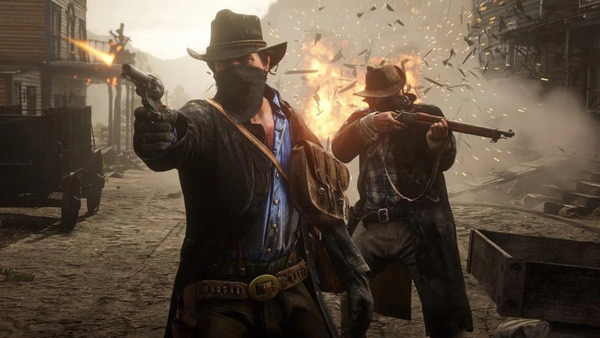 Honor affects gang relationships. High honor prompts supportive dialogue from Dutch, while low honor leads to tension, showing how Arthur’s actions influence the entire gang dynamic.[/caption]
Effects on Arthur’s Reputation and Rewards
Honor directly impacts rewards, with higher honor yielding more favorable outcomes.
Merchants and Discounts
High honor grants Arthur discounts in stores and positive interactions, while low honor results in higher prices, reflecting society’s view of his morality.
Unique Outfits and Weapons
Certain outfits and items are exclusive to high or low honor, incentivizing players to align Arthur’s honor with their desired rewards. These exclusive items also add depth to Arthur’s physical transformation over time.
The Player’s Choice: High Honor or Low Honor
The choice to play Arthur as a hero or a ruthless outlaw significantly changes the RDR2 experience.
Pros and Cons of High Honor
Playing with high honor provides a more redemptive narrative, with NPCs showing respect and admiration. The experience feels more aligned with Arthur’s conscience, giving players a sense of accomplishment.
Pros and Cons of Low Honor
Choosing low honor presents Arthur as a feared character, with NPCs responding with fear or resentment. This path may be darker but provides insight into a different side of Arthur’s personality and choices.
The Impact on Endgame: How Honor Shapes Arthur’s Final Journey
The Honor System’s significance is most apparent in the game’s final act, where Arthur’s moral choices culminate in a powerful resolution.
Honor-Based Endings
Arthur’s honor level affects his final interactions, particularly with key characters like Dutch and Micah. High honor yields a more hopeful ending, while low honor presents a darker closure to his story.
Reflection on Arthur’s Legacy
The closing scenes highlight Arthur’s influence on the world around him, his impact on the Van der Linde gang, and his personal journey. Players see how their choices have shaped Arthur’s life, adding weight to the Honor System.
Tips for Managing Arthur’s Honor
Balancing honor with survival can be challenging, but careful planning can help maintain a consistent honor level.
Regular Acts of Kindness
Engaging in small acts of kindness, such as helping strangers or donating to camp, raises honor and counteracts dishonorable acts.
Restraint in Conflict
Choosing non-lethal methods in fights, particularly in populated areas, helps Arthur maintain a positive reputation while minimizing unnecessary bloodshed.
Strategic Choices: Building a Consistent Honor Level
Consistency in honor decisions not only affects gameplay but also enhances immersion in Arthur’s journey.
Choosing Allies Wisely
Forming alliances with certain NPCs impacts Arthur’s honor trajectory. Helping law-abiding citizens or assisting those in need adds to his good reputation.
Weighing the Morality of Each Action
Each choice, from robbing to helping others, requires players to weigh the immediate benefits against long-term honor consequences, creating a nuanced moral experience.
[caption id="attachment_1852" align="aligncenter" width="600"]
Honor affects gang relationships. High honor prompts supportive dialogue from Dutch, while low honor leads to tension, showing how Arthur’s actions influence the entire gang dynamic.[/caption]
Effects on Arthur’s Reputation and Rewards
Honor directly impacts rewards, with higher honor yielding more favorable outcomes.
Merchants and Discounts
High honor grants Arthur discounts in stores and positive interactions, while low honor results in higher prices, reflecting society’s view of his morality.
Unique Outfits and Weapons
Certain outfits and items are exclusive to high or low honor, incentivizing players to align Arthur’s honor with their desired rewards. These exclusive items also add depth to Arthur’s physical transformation over time.
The Player’s Choice: High Honor or Low Honor
The choice to play Arthur as a hero or a ruthless outlaw significantly changes the RDR2 experience.
Pros and Cons of High Honor
Playing with high honor provides a more redemptive narrative, with NPCs showing respect and admiration. The experience feels more aligned with Arthur’s conscience, giving players a sense of accomplishment.
Pros and Cons of Low Honor
Choosing low honor presents Arthur as a feared character, with NPCs responding with fear or resentment. This path may be darker but provides insight into a different side of Arthur’s personality and choices.
The Impact on Endgame: How Honor Shapes Arthur’s Final Journey
The Honor System’s significance is most apparent in the game’s final act, where Arthur’s moral choices culminate in a powerful resolution.
Honor-Based Endings
Arthur’s honor level affects his final interactions, particularly with key characters like Dutch and Micah. High honor yields a more hopeful ending, while low honor presents a darker closure to his story.
Reflection on Arthur’s Legacy
The closing scenes highlight Arthur’s influence on the world around him, his impact on the Van der Linde gang, and his personal journey. Players see how their choices have shaped Arthur’s life, adding weight to the Honor System.
Tips for Managing Arthur’s Honor
Balancing honor with survival can be challenging, but careful planning can help maintain a consistent honor level.
Regular Acts of Kindness
Engaging in small acts of kindness, such as helping strangers or donating to camp, raises honor and counteracts dishonorable acts.
Restraint in Conflict
Choosing non-lethal methods in fights, particularly in populated areas, helps Arthur maintain a positive reputation while minimizing unnecessary bloodshed.
Strategic Choices: Building a Consistent Honor Level
Consistency in honor decisions not only affects gameplay but also enhances immersion in Arthur’s journey.
Choosing Allies Wisely
Forming alliances with certain NPCs impacts Arthur’s honor trajectory. Helping law-abiding citizens or assisting those in need adds to his good reputation.
Weighing the Morality of Each Action
Each choice, from robbing to helping others, requires players to weigh the immediate benefits against long-term honor consequences, creating a nuanced moral experience.
[caption id="attachment_1852" align="aligncenter" width="600"]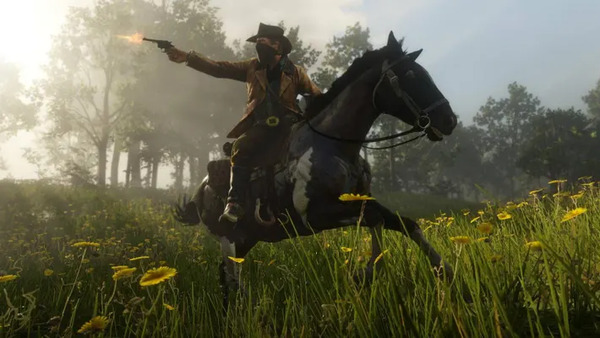 Each choice, from robbing to helping others, requires players to weigh the immediate benefits against long-term honor consequences, creating a nuanced moral experience.[/caption]
Conclusion
Red Dead Redemption 2’s Honor System is more than just a morality meter—it’s a comprehensive mechanic that shapes Arthur Morgan’s journey and reflects the choices players make throughout the game. Each decision, from mundane acts to major confrontations, alters Arthur’s path and influences the world around him. By understanding the intricacies of the Honor System, players can tailor Arthur’s story to reflect their own moral compass, whether they seek redemption or embrace the outlaw lifestyle.
Each choice, from robbing to helping others, requires players to weigh the immediate benefits against long-term honor consequences, creating a nuanced moral experience.[/caption]
Conclusion
Red Dead Redemption 2’s Honor System is more than just a morality meter—it’s a comprehensive mechanic that shapes Arthur Morgan’s journey and reflects the choices players make throughout the game. Each decision, from mundane acts to major confrontations, alters Arthur’s path and influences the world around him. By understanding the intricacies of the Honor System, players can tailor Arthur’s story to reflect their own moral compass, whether they seek redemption or embrace the outlaw lifestyle.
 The Honor System is a core gameplay mechanic in RDR2, affecting interactions, reputation, and story progression.[/caption]
How Honor Works
The system operates on a sliding scale, with honor ranging from low (negative) to high (positive). Good deeds raise honor, while nefarious acts lower it, creating a complex moral landscape for players to navigate.
Importance of Honor
Honor significantly influences the game’s tone, including story arcs and endings. Higher honor results in a more sympathetic portrayal of Arthur, while lower honor showcases his ruthless side.
Early Game Decisions: Setting Arthur’s Path
The beginning of the game presents players with subtle opportunities to establish Arthur’s honor level.
First Encounters
When interacting with other characters, small choices, such as whether to greet or antagonize strangers, impact honor. Early, minor decisions create a foundation for Arthur’s reputation.
Hunting and Animal Treatment
Killing animals without using all their parts or leaving carcasses rotting in the open decreases honor, establishing early on that the game rewards responsible hunting.
Mid-Game Interactions and Evolving Consequences
As the game progresses, the stakes become higher, and honor impacts gameplay more noticeably.
Helping Townsfolk
Stopping to assist people in distress, from wagon accidents to snake bites, earns Arthur honor. These encounters show Arthur’s impact on the lives of others, adding depth to the honor mechanic.
Conflicts and Restraint
While fighting is often unavoidable, choosing to knock out rather than kill opponents yields honor. This restraint, especially in towns, demonstrates Arthur’s sense of justice and adds to his reputation.
Balancing Honor with Survival: Outlaw Life vs. Honor
Arthur’s life as an outlaw creates a challenging dynamic between survival and honor.
Robbing for Necessity
Robbing trains, stagecoaches, or strangers results in lost honor, but necessary robberies sometimes conflict with Arthur’s moral path. Finding ways to offset dishonorable acts, such as helping strangers or donating to the camp, becomes crucial.
Handling Bounties
Avoiding unnecessary bloodshed when bounty hunters track Arthur maintains his honor. Instead of killing pursuers, disarming them or escaping is a strategic way to preserve his reputation.
Late Game Choices and Honor’s Impact on Story
As Arthur’s story nears its climax, his honor level determines much of his legacy and relationships.
Key Story Moments
Certain missions include pivotal choices that significantly alter the story, and high honor unlocks different dialogues and story endings. Key moments, such as helping John Marston’s family, resonate differently depending on Arthur’s honor.
Interaction with Gang Members
Honor affects gang relationships. High honor prompts supportive dialogue from Dutch, while low honor leads to tension, showing how Arthur’s actions influence the entire gang dynamic.
[caption id="attachment_1851" align="aligncenter" width="600"]
The Honor System is a core gameplay mechanic in RDR2, affecting interactions, reputation, and story progression.[/caption]
How Honor Works
The system operates on a sliding scale, with honor ranging from low (negative) to high (positive). Good deeds raise honor, while nefarious acts lower it, creating a complex moral landscape for players to navigate.
Importance of Honor
Honor significantly influences the game’s tone, including story arcs and endings. Higher honor results in a more sympathetic portrayal of Arthur, while lower honor showcases his ruthless side.
Early Game Decisions: Setting Arthur’s Path
The beginning of the game presents players with subtle opportunities to establish Arthur’s honor level.
First Encounters
When interacting with other characters, small choices, such as whether to greet or antagonize strangers, impact honor. Early, minor decisions create a foundation for Arthur’s reputation.
Hunting and Animal Treatment
Killing animals without using all their parts or leaving carcasses rotting in the open decreases honor, establishing early on that the game rewards responsible hunting.
Mid-Game Interactions and Evolving Consequences
As the game progresses, the stakes become higher, and honor impacts gameplay more noticeably.
Helping Townsfolk
Stopping to assist people in distress, from wagon accidents to snake bites, earns Arthur honor. These encounters show Arthur’s impact on the lives of others, adding depth to the honor mechanic.
Conflicts and Restraint
While fighting is often unavoidable, choosing to knock out rather than kill opponents yields honor. This restraint, especially in towns, demonstrates Arthur’s sense of justice and adds to his reputation.
Balancing Honor with Survival: Outlaw Life vs. Honor
Arthur’s life as an outlaw creates a challenging dynamic between survival and honor.
Robbing for Necessity
Robbing trains, stagecoaches, or strangers results in lost honor, but necessary robberies sometimes conflict with Arthur’s moral path. Finding ways to offset dishonorable acts, such as helping strangers or donating to the camp, becomes crucial.
Handling Bounties
Avoiding unnecessary bloodshed when bounty hunters track Arthur maintains his honor. Instead of killing pursuers, disarming them or escaping is a strategic way to preserve his reputation.
Late Game Choices and Honor’s Impact on Story
As Arthur’s story nears its climax, his honor level determines much of his legacy and relationships.
Key Story Moments
Certain missions include pivotal choices that significantly alter the story, and high honor unlocks different dialogues and story endings. Key moments, such as helping John Marston’s family, resonate differently depending on Arthur’s honor.
Interaction with Gang Members
Honor affects gang relationships. High honor prompts supportive dialogue from Dutch, while low honor leads to tension, showing how Arthur’s actions influence the entire gang dynamic.
[caption id="attachment_1851" align="aligncenter" width="600"] Honor affects gang relationships. High honor prompts supportive dialogue from Dutch, while low honor leads to tension, showing how Arthur’s actions influence the entire gang dynamic.[/caption]
Effects on Arthur’s Reputation and Rewards
Honor directly impacts rewards, with higher honor yielding more favorable outcomes.
Merchants and Discounts
High honor grants Arthur discounts in stores and positive interactions, while low honor results in higher prices, reflecting society’s view of his morality.
Unique Outfits and Weapons
Certain outfits and items are exclusive to high or low honor, incentivizing players to align Arthur’s honor with their desired rewards. These exclusive items also add depth to Arthur’s physical transformation over time.
The Player’s Choice: High Honor or Low Honor
The choice to play Arthur as a hero or a ruthless outlaw significantly changes the RDR2 experience.
Pros and Cons of High Honor
Playing with high honor provides a more redemptive narrative, with NPCs showing respect and admiration. The experience feels more aligned with Arthur’s conscience, giving players a sense of accomplishment.
Pros and Cons of Low Honor
Choosing low honor presents Arthur as a feared character, with NPCs responding with fear or resentment. This path may be darker but provides insight into a different side of Arthur’s personality and choices.
The Impact on Endgame: How Honor Shapes Arthur’s Final Journey
The Honor System’s significance is most apparent in the game’s final act, where Arthur’s moral choices culminate in a powerful resolution.
Honor-Based Endings
Arthur’s honor level affects his final interactions, particularly with key characters like Dutch and Micah. High honor yields a more hopeful ending, while low honor presents a darker closure to his story.
Reflection on Arthur’s Legacy
The closing scenes highlight Arthur’s influence on the world around him, his impact on the Van der Linde gang, and his personal journey. Players see how their choices have shaped Arthur’s life, adding weight to the Honor System.
Tips for Managing Arthur’s Honor
Balancing honor with survival can be challenging, but careful planning can help maintain a consistent honor level.
Regular Acts of Kindness
Engaging in small acts of kindness, such as helping strangers or donating to camp, raises honor and counteracts dishonorable acts.
Restraint in Conflict
Choosing non-lethal methods in fights, particularly in populated areas, helps Arthur maintain a positive reputation while minimizing unnecessary bloodshed.
Strategic Choices: Building a Consistent Honor Level
Consistency in honor decisions not only affects gameplay but also enhances immersion in Arthur’s journey.
Choosing Allies Wisely
Forming alliances with certain NPCs impacts Arthur’s honor trajectory. Helping law-abiding citizens or assisting those in need adds to his good reputation.
Weighing the Morality of Each Action
Each choice, from robbing to helping others, requires players to weigh the immediate benefits against long-term honor consequences, creating a nuanced moral experience.
[caption id="attachment_1852" align="aligncenter" width="600"]
Honor affects gang relationships. High honor prompts supportive dialogue from Dutch, while low honor leads to tension, showing how Arthur’s actions influence the entire gang dynamic.[/caption]
Effects on Arthur’s Reputation and Rewards
Honor directly impacts rewards, with higher honor yielding more favorable outcomes.
Merchants and Discounts
High honor grants Arthur discounts in stores and positive interactions, while low honor results in higher prices, reflecting society’s view of his morality.
Unique Outfits and Weapons
Certain outfits and items are exclusive to high or low honor, incentivizing players to align Arthur’s honor with their desired rewards. These exclusive items also add depth to Arthur’s physical transformation over time.
The Player’s Choice: High Honor or Low Honor
The choice to play Arthur as a hero or a ruthless outlaw significantly changes the RDR2 experience.
Pros and Cons of High Honor
Playing with high honor provides a more redemptive narrative, with NPCs showing respect and admiration. The experience feels more aligned with Arthur’s conscience, giving players a sense of accomplishment.
Pros and Cons of Low Honor
Choosing low honor presents Arthur as a feared character, with NPCs responding with fear or resentment. This path may be darker but provides insight into a different side of Arthur’s personality and choices.
The Impact on Endgame: How Honor Shapes Arthur’s Final Journey
The Honor System’s significance is most apparent in the game’s final act, where Arthur’s moral choices culminate in a powerful resolution.
Honor-Based Endings
Arthur’s honor level affects his final interactions, particularly with key characters like Dutch and Micah. High honor yields a more hopeful ending, while low honor presents a darker closure to his story.
Reflection on Arthur’s Legacy
The closing scenes highlight Arthur’s influence on the world around him, his impact on the Van der Linde gang, and his personal journey. Players see how their choices have shaped Arthur’s life, adding weight to the Honor System.
Tips for Managing Arthur’s Honor
Balancing honor with survival can be challenging, but careful planning can help maintain a consistent honor level.
Regular Acts of Kindness
Engaging in small acts of kindness, such as helping strangers or donating to camp, raises honor and counteracts dishonorable acts.
Restraint in Conflict
Choosing non-lethal methods in fights, particularly in populated areas, helps Arthur maintain a positive reputation while minimizing unnecessary bloodshed.
Strategic Choices: Building a Consistent Honor Level
Consistency in honor decisions not only affects gameplay but also enhances immersion in Arthur’s journey.
Choosing Allies Wisely
Forming alliances with certain NPCs impacts Arthur’s honor trajectory. Helping law-abiding citizens or assisting those in need adds to his good reputation.
Weighing the Morality of Each Action
Each choice, from robbing to helping others, requires players to weigh the immediate benefits against long-term honor consequences, creating a nuanced moral experience.
[caption id="attachment_1852" align="aligncenter" width="600"] Each choice, from robbing to helping others, requires players to weigh the immediate benefits against long-term honor consequences, creating a nuanced moral experience.[/caption]
Conclusion
Red Dead Redemption 2’s Honor System is more than just a morality meter—it’s a comprehensive mechanic that shapes Arthur Morgan’s journey and reflects the choices players make throughout the game. Each decision, from mundane acts to major confrontations, alters Arthur’s path and influences the world around him. By understanding the intricacies of the Honor System, players can tailor Arthur’s story to reflect their own moral compass, whether they seek redemption or embrace the outlaw lifestyle.
Each choice, from robbing to helping others, requires players to weigh the immediate benefits against long-term honor consequences, creating a nuanced moral experience.[/caption]
Conclusion
Red Dead Redemption 2’s Honor System is more than just a morality meter—it’s a comprehensive mechanic that shapes Arthur Morgan’s journey and reflects the choices players make throughout the game. Each decision, from mundane acts to major confrontations, alters Arthur’s path and influences the world around him. By understanding the intricacies of the Honor System, players can tailor Arthur’s story to reflect their own moral compass, whether they seek redemption or embrace the outlaw lifestyle. 









